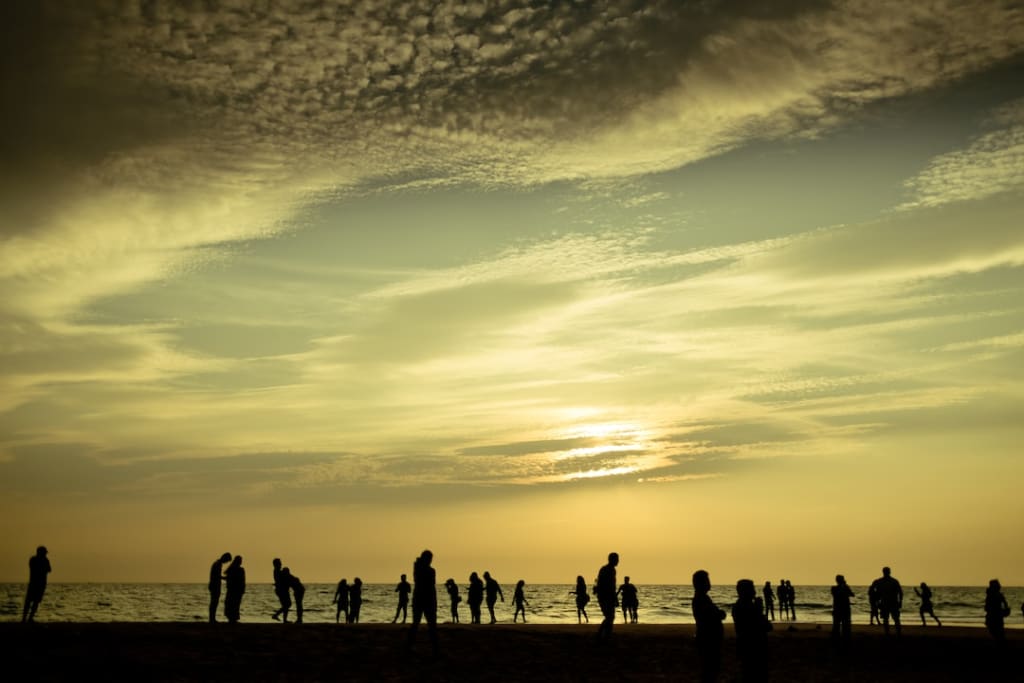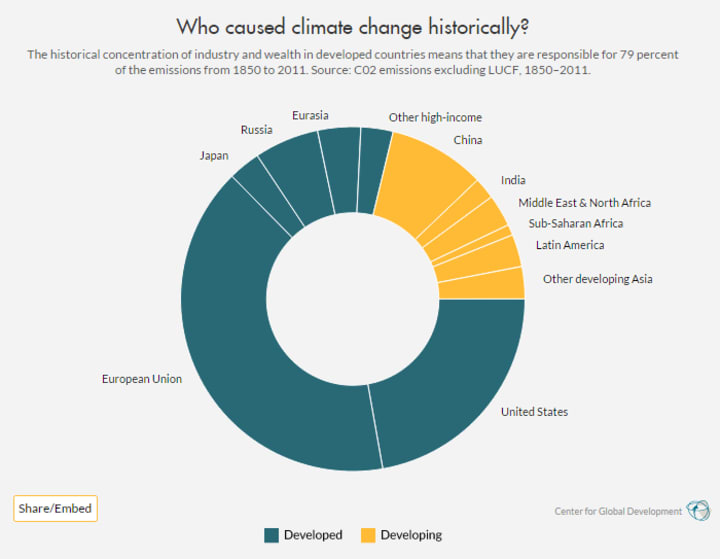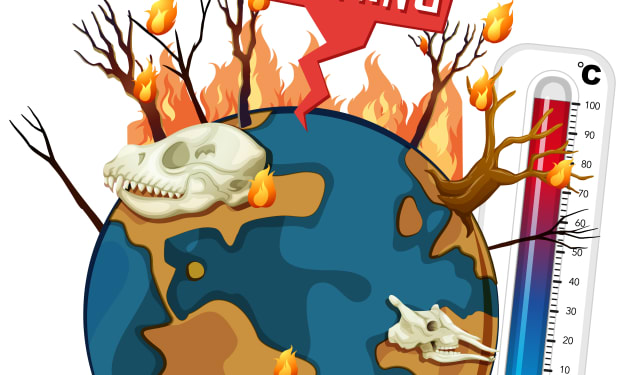how developed countries are responsible most for the climate change and developing countries have to pay price for it.

Introduction:
Climate change is a pressing global issue that affects all of us, regardless of where we live and what our circumstances are. It’s a problem that has been created by human activities, and the developed world is responsible for the majority of carbon emissions. According to the World Resource Institute, developed countries have been responsible for 79% of carbon emissions from 1850 to 2011.As of 2021, US and CHINA are leading CO2 emitters (44.4%) . This has led to a situation where the developed world is largely immune to the effects of climate change, while the developing world is paying the price.

LACK OF RESOURCES FOR THIRD WORLD COUNTRIES:
The lack of wealth in the developing world has made them more vulnerable to the effects of climate change. South Asian and African countries are facing a flood catastrophe and do not have the resources to overcome the issue. In these countries, we see the devastating consequences of climate change, where communities are being displaced and lives are being lost. In contrast, European and North American countries are better equipped to handle such crises, but even they are not immune to the impacts of climate change.
Regions affected by global warming despite having a low carbon footprint:
South Asian countries like Pakistan have been the most recent victims of climate change, despite having caused less than 1% of carbon emissions. The disastrous floods have swept away thousands of houses dispatching millions of people from their homes and destroying millions of dollars worth of crops and cattle.
Bangladesh is also facing a crisis, with the threat of mass destruction from cyclones and tsunamis, which could displace 13 million people by 2050. This will be a vulnerable attack on the economy of the country. Average tropical cyclone costs the country $1billion of taxpayer’s money and GDP can fall by 9%.

Africa has warmed up by 2% since the pre-industrial period (1850–1900) and 1% from 1901. The rise in global sea levels is 3–4 mm per year, but in Africa, it is 5mm per year. Rainfall has disrupted its pattern and lakes are shrinking worsening the situation of region .
South American countries are also suffering from polluted climate. From the burning of earth’s lungs i.e Brazil’s Amazon forest to melting glaciers in Patagonia, and drying of lakes in Bolivia.
carbon emitters are shooting themselves in foot:
Carbon emitters are shooting themselves in the foot by failing to take action on climate change. The United States is one of the biggest sources of carbon emissions and is also facing the effects of the global catastrophe. The rise in sea levels has led to an increase in “nuisance floods” (also known as “sunny day floods”) in major US cities such as Boston and Miami, which have increased five-to-tenfold since the 1960s.
China, being the largest carbon emitter, is also facing the threat of rising sea levels, which have already caused floods and destruction of crops. Due to the CO2 greenhouse gas emission, this would cause more destruction and GDP loss and risk of lives would be inevitable.
Australia is also severely affected by climate change. Heat waves has caused more deaths in the past 50 years than all natural disasters combined. The fire season in Australia is also increasing every year, leading to devastating wildfires that destroy homes and wildlife habitats.

Conclusion:
It is important that we acknowledge the cause of climate change at a global forum and that the responsible countries help those that are in the middle of a catastrophe for which they are not responsible. The time for action is now, and we must come together as a global community to tackle this problem head-on. It’s not just about helping the people who are currently suffering from the effects of climate change, it’s about ensuring a future for all of us and future generations. If we don’t act now, the consequences will be dire, and it will be too late to reverse the damage.






Comments
There are no comments for this story
Be the first to respond and start the conversation.